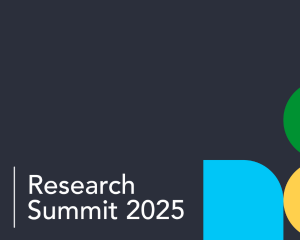
Research Seminar: Early Career Researcher Rare Disease Showcase
Research Seminar: Early Career Researcher Rare Disease Showcase
The Genomics England Research Seminar series is a season of events held to demonstrate the best research from Genomics England and our partners. They started in October 2018, and are monthly, free-to-attend evenings of talks presented by GECIP members on the latest research being performed on the 100,000 Genomes Project data from our academic community (GECIP), commercial partners (Discovery Forum), COVID analysis and Genomics England research on other cohorts.
This May's seminar will be a special event, highlighting the work of some of the brilliant Early Career Researchers working with data in the Genomics England Research Environment. This month's speakers will be:
A systematic approach to characterize the contribution of 5’UTR variation to inherited retinal disease - Alfredo Dueñas Rey
Alfredo Dueñas Rey is an Early Stage
Researcher, originally from Spain. He decided to take a new direction and moved to Sweden, where he obtained a BSc in Biomedicine at Karolinska Institutet and MSc in Molecular Genetics at Lund University. In July 2019, Alfredo joined the Ophthalmogenetics group at the Center for Medical Genetics Ghent as a MSCA-ITN PhD fellow within the StarT consortium. Alfredo has a particular interest in non-coding genomic variation and how it can affect regulation of gene expression and ultimately disease pathogenesis.
De novo variant analysis solves cases of ocular maldevelopment - Samantha Malka
Samantha Malka is a genetic counsellor at Moorfields Eye Hospital, London, and has recently completed an MSc in Genomic Medicine at Queen Mary University of London. Samantha has worked with the Moorfields Genetics team for over 14 years and has led the local recruitment of several large-scale genomic studies, including the Genomics England 100,000 Genomes study and the NIHR BioResource for Rare Diseases.
Whole genome sequencing in the English NHS Genomic Medicine Service: An exploration of service delivery using process mapping - Nastazja Laskowski
Nat holds an MPhil in Genomic Medicine from Cambridge University and is currently completing her training as a genetic counsellor. She is mapping how whole genome sequencing is delivered in the English NHS for paediatric rare disease diagnosis. Nat is also completing her computer science PhD in data transparency in the pharmaceutical industry.
AMFR dysfunction causes spastic paraplegia amenable to statin treatment in a preclinical model - Eva Medico Salsench
Eva Medico Salsench is currently doing her PhD in Biomedical Sciences in Erasmus Medical Center Rotterdam (Netherlands). She finished her BSc Biomedical Sciences at the Universitat de Barcelona (Spain) in 2016 and her MSc Molecular Medicine at Erasmus University of Rotterdam in 2020.
A systematic analysis of splicing variants identifies new diagnoses in the 100,000 Genomes Project - Alex Blakes
Alex Blakes is a junior doctor training in Paediatrics. He has recently started a Wellcome Research Training Fellowship for Clinicians at the University of Manchester.
About the research seminars
The seminars will be held on the last Tuesday of each month at 2 to 3pm. These will be online sessions open to everyone and free to attend, we hope to have representation from across the GECIP, Discovery Forum and 100,000 Genomes Project participants as well as anyone else who would be interested in joining.
For updates on the seminars including announcements and speakers please follow the GECIP team Twitter. You can watch all previous Research Seminars on the Genomics England YouTube channel.
If you would like to present your research from the Genomics England Research Environment at one of these events please get in touch with the GECIP team at [email protected] and if you intend to publish on this research please include this so that we can publicise your paper on our Publications page.


